His jewelry in the form of miniature sculptures seems to hold a sense of humor while being sensuous and exaggerated in a kind of comic-strip style. Nevertheless it also contains an intense philosophical examination, mostly of antiquity. Manfred Bischoff (1947–2015) is deemed to be one of the most innovative and important jewelry artists of our time. The goldsmith was born in Schömberg in the Black Forest area and died in his adopted home in Italy. After his apprenticeship he studied jewelry design with Reinhold Reiling at the University for Applied Sciences in Pforzheim as well as goldsmithing at the Academy of Fine Arts in Munich. Manfred Bischoff’s works can be found in many private and museum collections around the world. For twelve years he taught at the Alchimia School of Goldsmithing in Florence, helping to establish the school’s international acclaim, while familiarizing a multitude of young goldsmiths with the art and craft of their trade. His colleagues held him in high esteem.
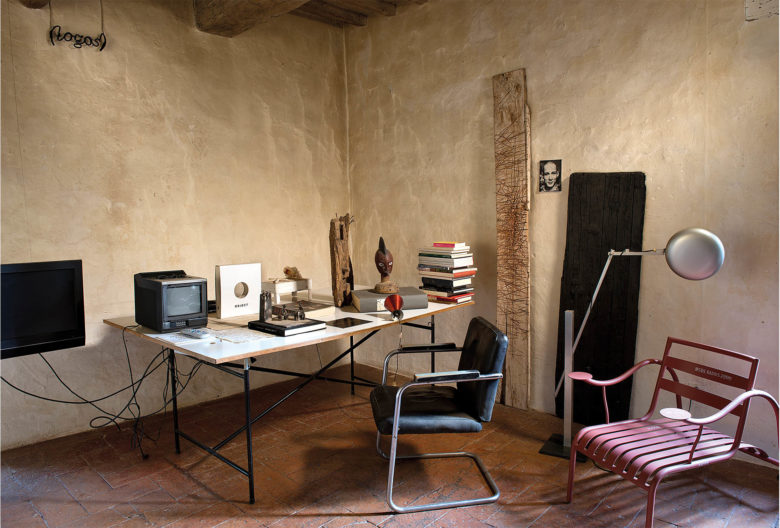
Manfred Bischoff lived and worked for many years in San Casciano dei Bagni in the province of Siena. Photos Federico Cavicchioli
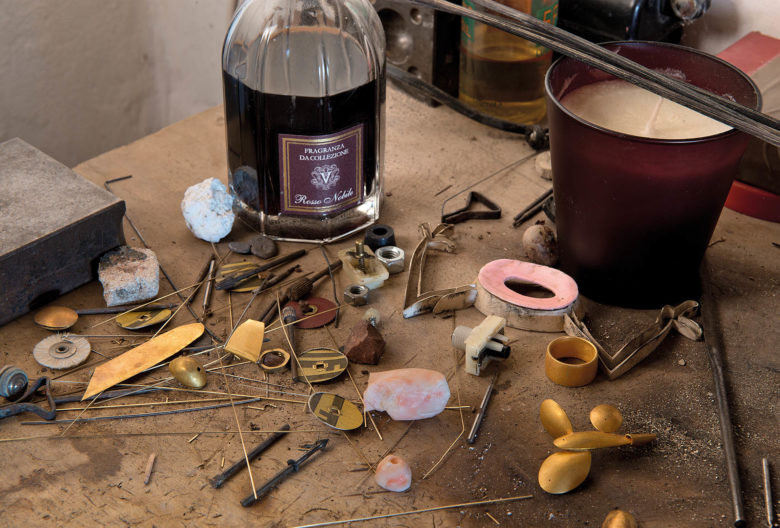
Gold and coral were the preferred materials of the jewelery artist Manfred Bischoff
As a tribute to Manfred Bischoff and on the occasion of the International Craft Fair in Munich Galerie Handwerk presents works of his from 1980 up until shortly before his death. Most of all, there will be not only numerous pieces of jewelry from his early work but also drawings, gouaches and personal objects from his house in Southern Tuscany. In doing so, Galerie Handwerk cooperates with Rike Bartels, the administrator of Manfred Bischoff’s estate in Munich. Altogether, around 80 pieces of jewelry from that archive will be on display. They document the various stages of his œuvre and all the hallmarks of his works that Manfred Bischoff had developed into an artistic style of his own from the 1990s. That style is characterized by the three levels of “jewelry, drawing and title,” as Cornelie Holzach has framed it in the catalogue of the exhibition “Personale: Manfred Bischoff” at Pforzheim Jewelry Museum in 2006.

Bishop’s ring Kiss and go, 1992. Gold, coral. Photo Otto Künzli / VG Bild-Kunst, Collection Bollmann
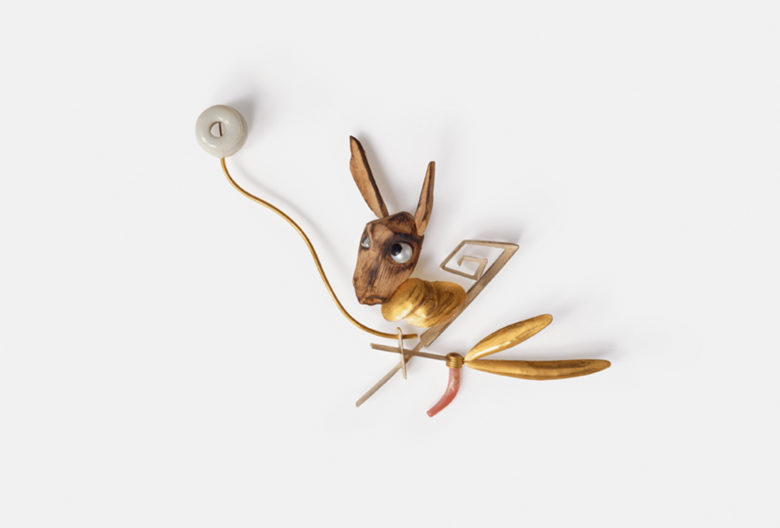
Brooch ,Enthemmung I (Dionysisch), 1987, Gold, silver, coral, pearls, olive wood, porcelain. Photo Otto Künzli / VG Bild-Kunst
The pieces from the 1980s bear the stylistic features of that era – graffiti, typography and comic – with particular perspicuity. In their distinctness and symbolic character they already combine sign and narrative. Unmistakable are finely composed brooches made of thin, sometimes strongly colorful, lacquer wires and sticks, triangles and zigzag lines. The same is true of the portraits made of black wires that seem like drawings. However, Manfred Bischoff achieved his artistic apogee in his works with gold plating from the 1990s. They are among the most sought-after collector’s items in contemporary jewelry. In these he proves himself to be a genuine storyteller: for most of those works come with a written pages carrying titles, an allusion, a quote or a thought. Philosophy, literature, psychology, love, eroticism and repeated allusions to antiquity, perhaps Manfred Bischoff’s place of longing, turn these pieces into something unique, unusual and exciting. The combination of gold plating and the delicate pink of the coral, which carried great symbolic significance for Bischoff, generate the mood of his singular style.
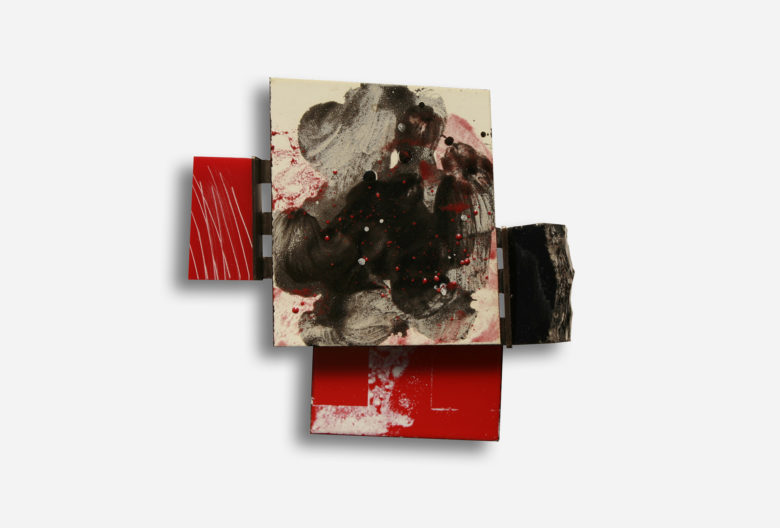
Brooch, hommage à Manfred Bischoff by Ramon Puig Cuyas, 2016
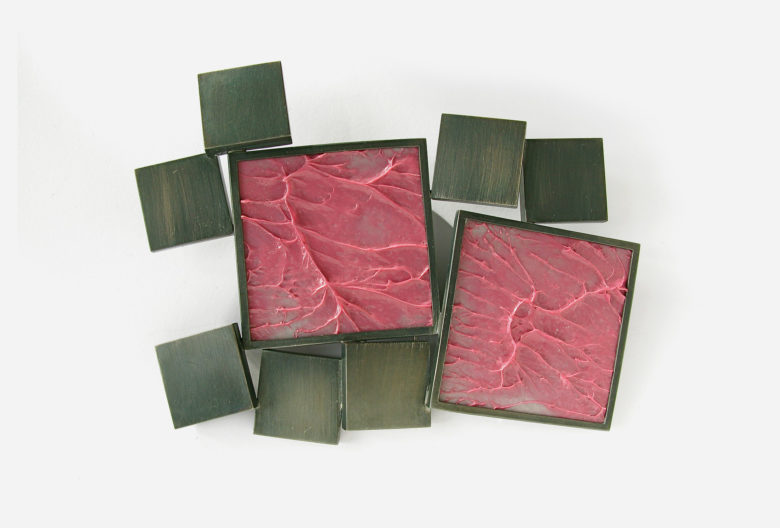
Brooch, hommage à Manfred Bischoff by Georg Dobler, 2016
In a further part to the exhibition works by jewelry artists who were connected to Manfred Bischoff as friends or colleagues, enter into a dialogue with his œuvre. The group of 17 internationally acclaimed jewelry artists will conceive their contributions as tributes to Manfred Bischoff. Many of them have made new pieces specifically for this show. Galerie Handwerk invited Giampaolo Babetto, Johanna Dahm, Georg Dobler, Gabi Dziuba, Hermann Jünger, Kadri Mälk, Bruno Martinazzi, Erico Nagai, Francesco Pavan, Dorothea Prühl, Rámon Puig Cuyás, Gerd Rothmann, Hubertus von Skal, Bernhard Schobinger, Peter Skubic, Robert Smit and Graziano Visintin. Two friends and collectors of Manfred Bischoff’s, Helen Drutt from New York and Karl Bollmann from Vienna, will speak at the opening of the exhibition on March 8, 2017.
Text Wolfgang Lösche
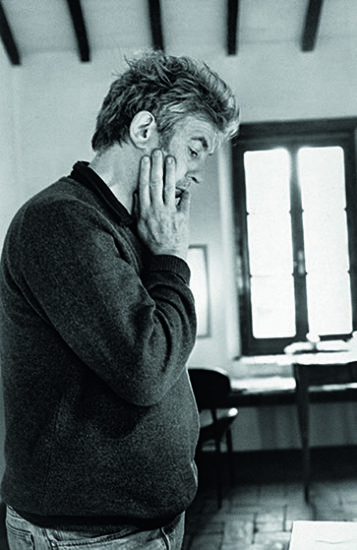
Deep thoughts and humorous jewelry. The artist Manfred Bischoff. Photo Rike Bartels
- —
-
Galerie Handwerk
Max-Joseph-Str. 4
80333 Munich
Germany - Link